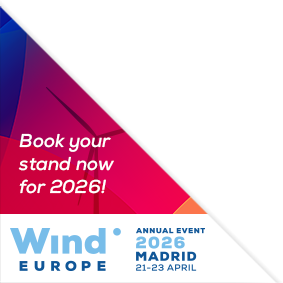Posters
Siblings:
ProceedingsProgrammeSpeakersPostersContent PartnersPowering the Future stageMarkets TheatreStudent programmeResearch & Innovation in actionProgramme Committee & abstracts reviewersPresenters’ dashboardCome meet the poster presenters to ask them questions and discuss their work
We would like to invite you to come and see the posters at our upcoming conference. The posters will showcase a diverse range of research topics, and will give delegates an opportunity to engage with the authors and learn more about their work. Whether you are a seasoned researcher or simply curious about the latest developments in your field, we believe that the posters will offer something of interest to everyone. So please join us at the conference and take advantage of this opportunity to learn and engage with your peers in industry and the academic community.
On 9 April at 17:15, we’ll also hold the main poster session and distinguish the 7 best posters of this year’s edition with our traditional Poster Awards Ceremony. Join us at the poster area to cheer and meet the laureates, and enjoy some drinks with all poster presenters!
We look forward to seeing you there!

PO051: BioReef: Marine nature restoration of European flat oysters and horse mussels in the Danish North Sea region
Henrike Semmler Le, Senior Specialist for Oceans and Fisheries, WWF Denmark
Abstract
In 2022, WWF Denmark and Ørsted initiated a marine restoration project - the BioReef project - supported by leading academics in this field from Technical University of Denmark (DTU Aqua). The restoration project centres on repopulating highly depleted reef-building species at scale in the Danish waters. Focus is on two, key species: European flat oysters (Ostrea edulis) and horse mussels (Modiolus modiolus). These species are considered important ecosystem builders, as the biogenic reefs they form provide vital habitat for a wide range of other marine species and provide a number of ecosystem services, including improved water quality. The project is an example of a replicable science-based solution to the current challenges we face in addressing the biodiversity crisis by developing and sharing new methods and protocols for healthy bivalve spat production and deployment, which can be replicated in upscaled restoration projects for the benefit of marine biodiversity across ecosystems.



